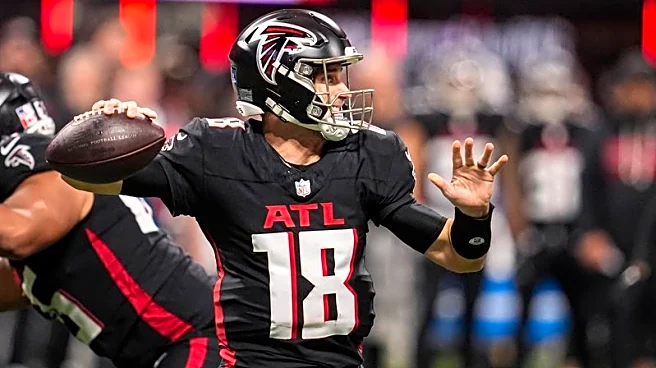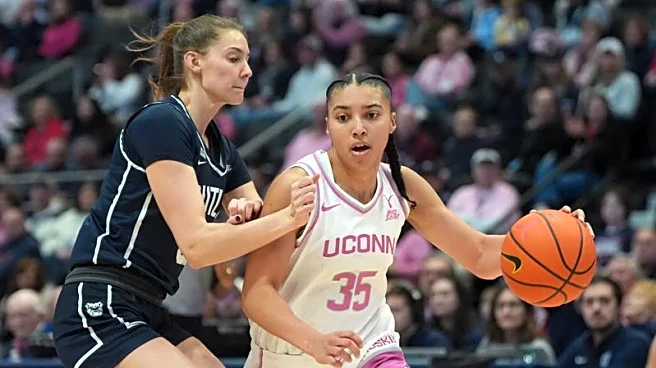What's Happening?
In Morocco, a series of protests led by Gen Z activists have erupted across more than a dozen cities, challenging government spending priorities and highlighting social inequities. The protests, organized by a leaderless collective known as Gen Z 212, have been fueled by dissatisfaction with government investments in infrastructure for the 2030 FIFA World Cup, contrasting with inadequate healthcare and education systems. The movement has gained traction among the youth, who are frustrated by high unemployment rates and limited opportunities, leading many to consider emigration. The protests have seen participation from minors, with some demonstrations turning violent, prompting government responses that include arrests and calls for dialogue.
Why It's Important?
The protests in Morocco underscore a growing discontent among the youth regarding government priorities and social inequities. As Morocco invests heavily in infrastructure for the World Cup, the disparity between public spending on spectacle projects and essential services like healthcare and education has become a focal point of criticism. The movement reflects broader regional trends where young populations are increasingly vocal about their dissatisfaction with traditional political structures and economic exclusion. The protests could potentially influence government policy, prompting a reevaluation of spending priorities and addressing the underlying social issues that have fueled the unrest.
What's Next?
The Moroccan government has expressed openness to dialogue with protesters, suggesting potential reforms in healthcare and education. However, the protesters demand more substantial changes, including the dismissal of corrupt officials and the redirection of funds from stadium projects to social services. The government's response and willingness to engage in meaningful reform will be crucial in determining the future trajectory of the protests. Continued unrest could lead to further international scrutiny and pressure on Morocco to address the grievances of its young population.
Beyond the Headlines
The protests highlight the ethical and cultural dimensions of government spending priorities, raising questions about the balance between national prestige and social welfare. The movement also reflects a shift in how young people engage with political issues, bypassing traditional institutions and leveraging digital platforms to organize and mobilize. This trend could signal a long-term shift in political activism, with implications for governance and policy-making in Morocco and beyond.










